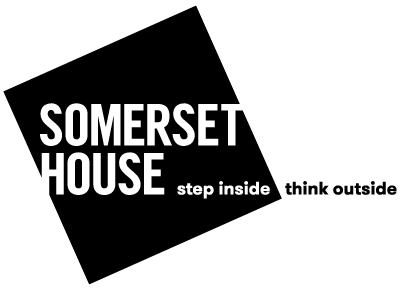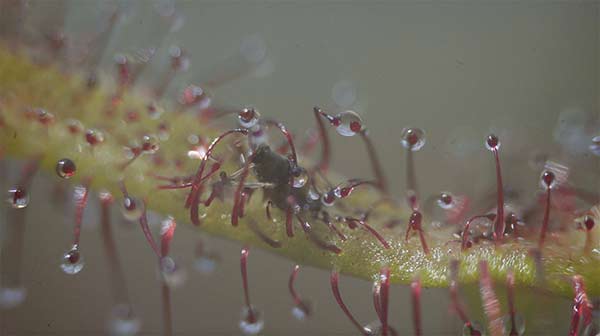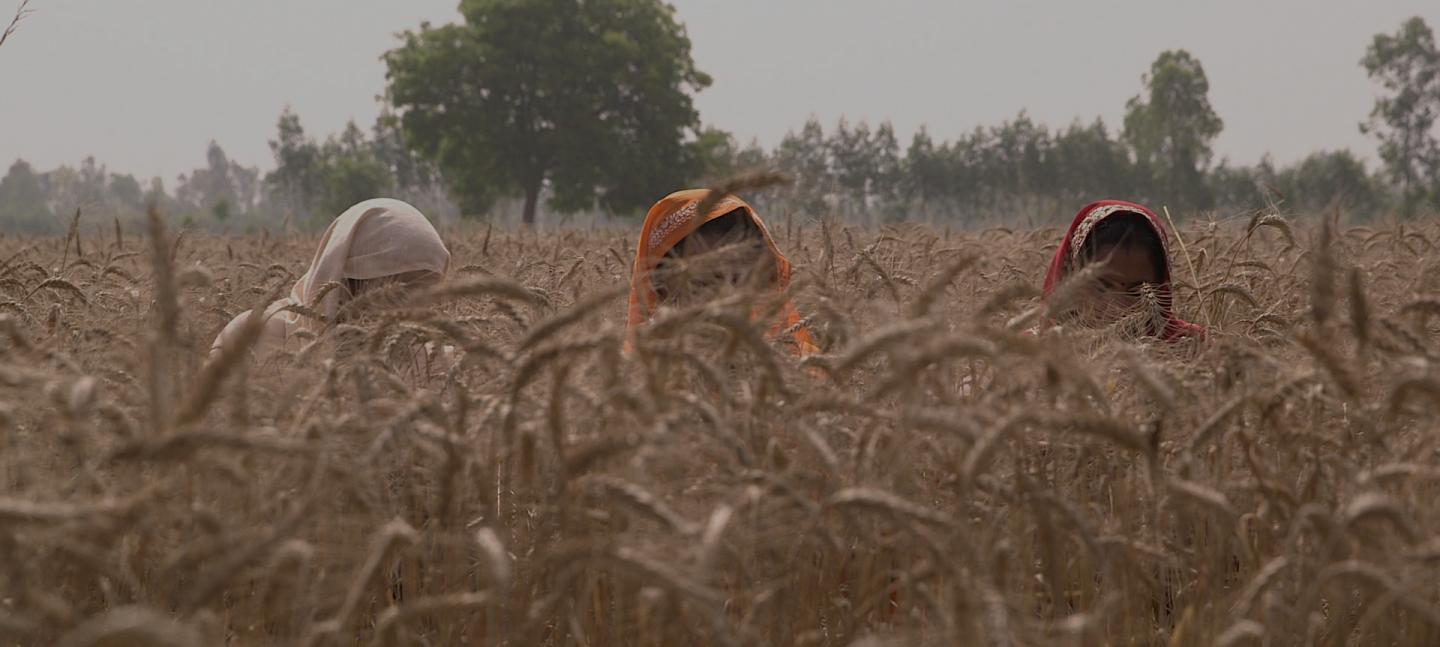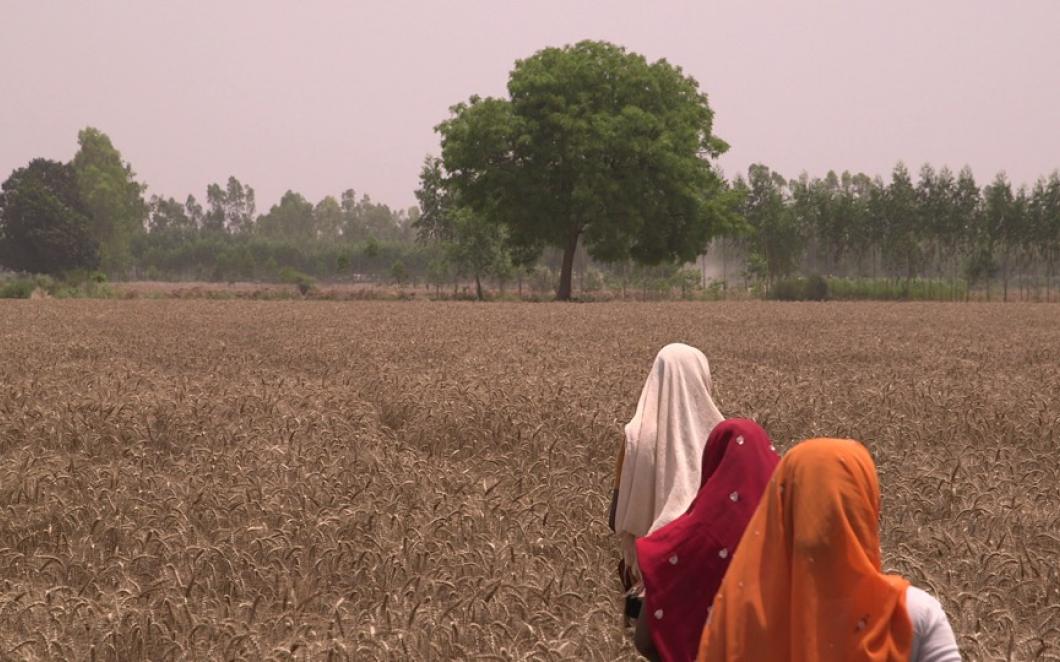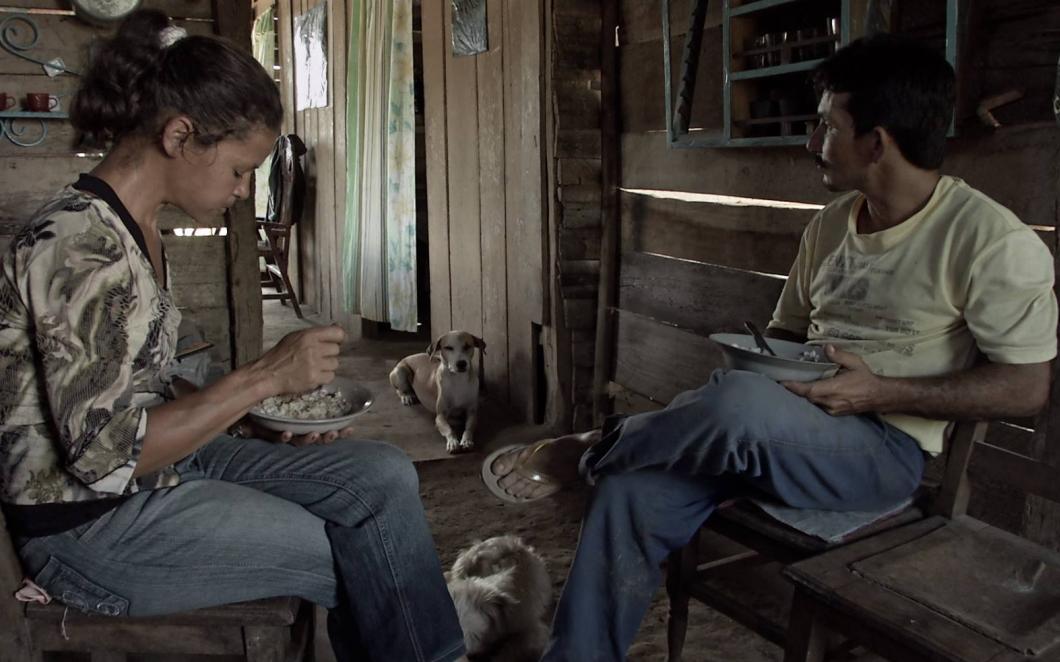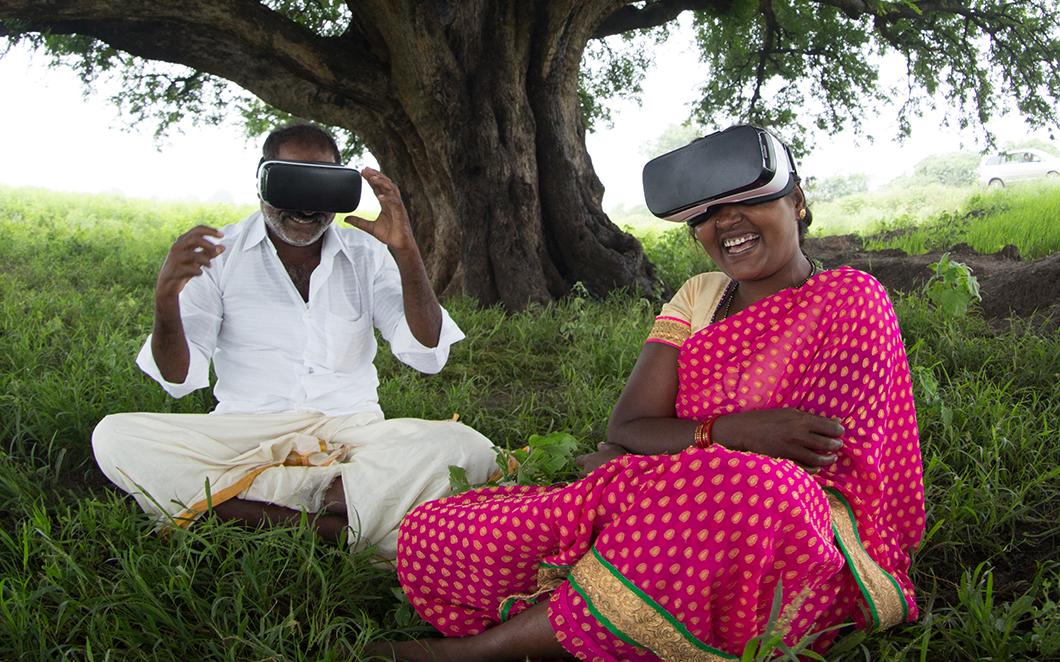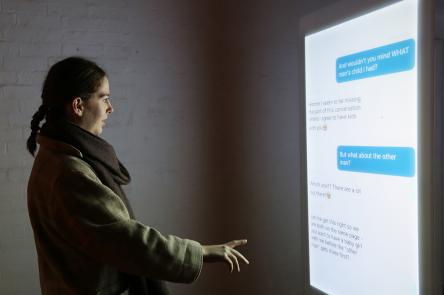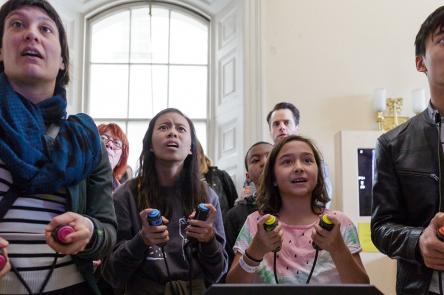
Using technology to create documentary and VR experiences, Jayisha Patel's filmmaking process places emphasis on collaboration, the prioritisation of emotion and avoidance of spectacle; an approach evident in Circle, selected for last year's Toronto International Film Festival, and current work in progress The Darkroom, a film Jayisha is developing whilst in residence at Somerset House Studios.
A golden gauze across the screen obscures and encircles women working the wheat fields. The strange, rustling sound of the grass severed by scythes and gathered between two hands is so close it's as if it’s brushing against your ear. Behind the pasture’s whisper, the women working the field are talking about Khushboo, the child at the centre of Jayisha Patel’s Circle, whose grandmother orchestrated her rape and arranged her marriage to a man she’d never met.
Drawing on such sensitive topics — couched in fear, familial trickery, and shame as they are — demands sensitivity in both form and production. The 14-minute documentary took Patel three years to make. Over these long periods she fostered relationships with Khushboo and her family that were rooted in trust and consent. This proximity is essential, she says, to avoid a particular normative documentary tendency towards spectacle.
